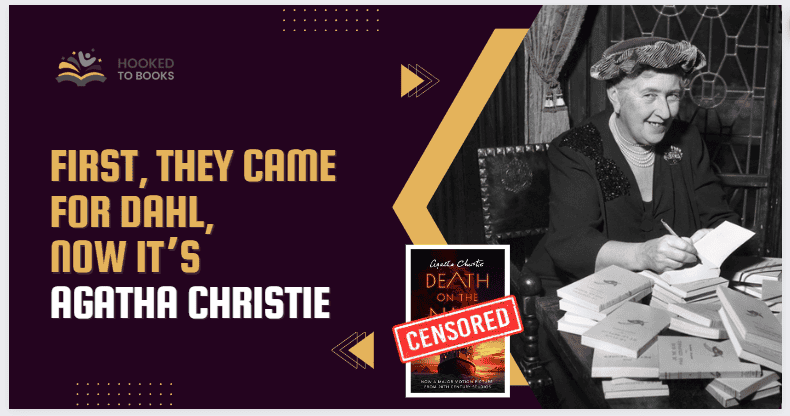Unless you’ve been living under a rock, you’ve probably heard the recent uproar surrounding the censorship of Roald Dahl’s work. But the classic children’s author isn’t the only literary legend to fall victim to the so-called ‘sensitivity readers’.
This week, publisher HarperCollins has come under fire for editing several portions of Agatha Christie’s books. Her beloved Hercule Poirot and Miss Marple series have both fallen victim to the editor’s fine tooth comb, and anything deemed unsuitable for today’s more delicate 21st-century readers has been changed, or deleted completely.
According to a report in the Telegraph, insults, references to ethnicity, and even some benign seeming descriptions of characters’ physiques have all been eliminated in favor of more politically correct alternatives.
Examples include removed references to “Nubian people” in the 1937 Poirot novel “Death on the Nile,” as well as the altered description of a servant in the short story collection “Miss Marple’s Final Cases and Two Other Stories.” Christie had depicted the character as “black” and “grinning,” but the edited version eliminates all reference to race, and wipes that grin right off his face, replacing it with a simple “nodding” action.
These are just a tiny handful of subtle yet pervasive changes scattered across the newest editions of Christie’s works, and needless to say, many readers are furious.
They argue that Christie’s books, which were written between 1920 and 1976, act as a time capsule. All literature does, and the fact that publishers like HarperCollins can’t see the importance of that is disappointing, to say the least.
Books are a record of the time in which they were written, and to tamper with that record is nothing short of an attempt to rewrite history.
Sure, many of us might cringe at the way that Christie, Dahl, and other novelists of their day display their prejudices so unashamedly across the page. But their character dialogue and prose reflect the attitudes and culture of that period and teach us much more about the past than any history book can.
And so, I’m standing firmly in the camp of outrage on this one. Censoring classic works of literature to avoid offending modern-day readers is more offensive than any insult or racial slur found within the pages of said books.
After all, how can we build a better society for future generations, if we don’t even have a clear picture of the one that went before?



